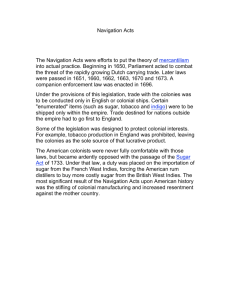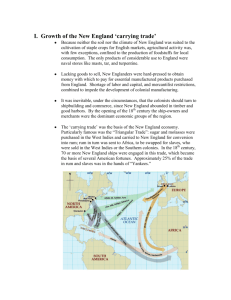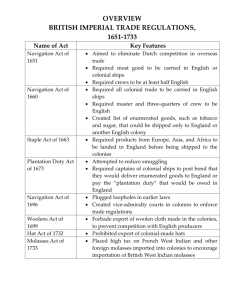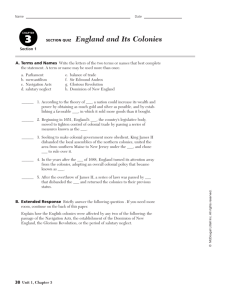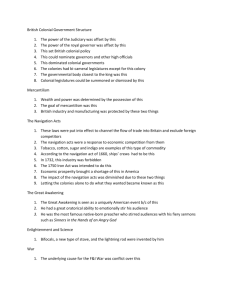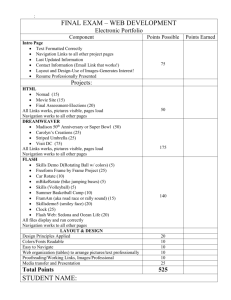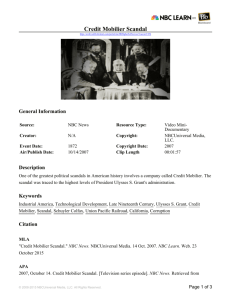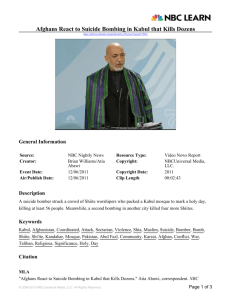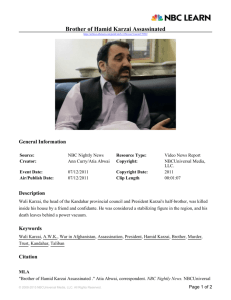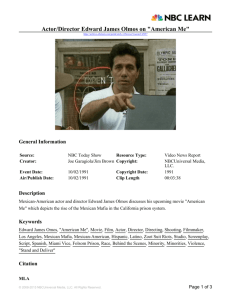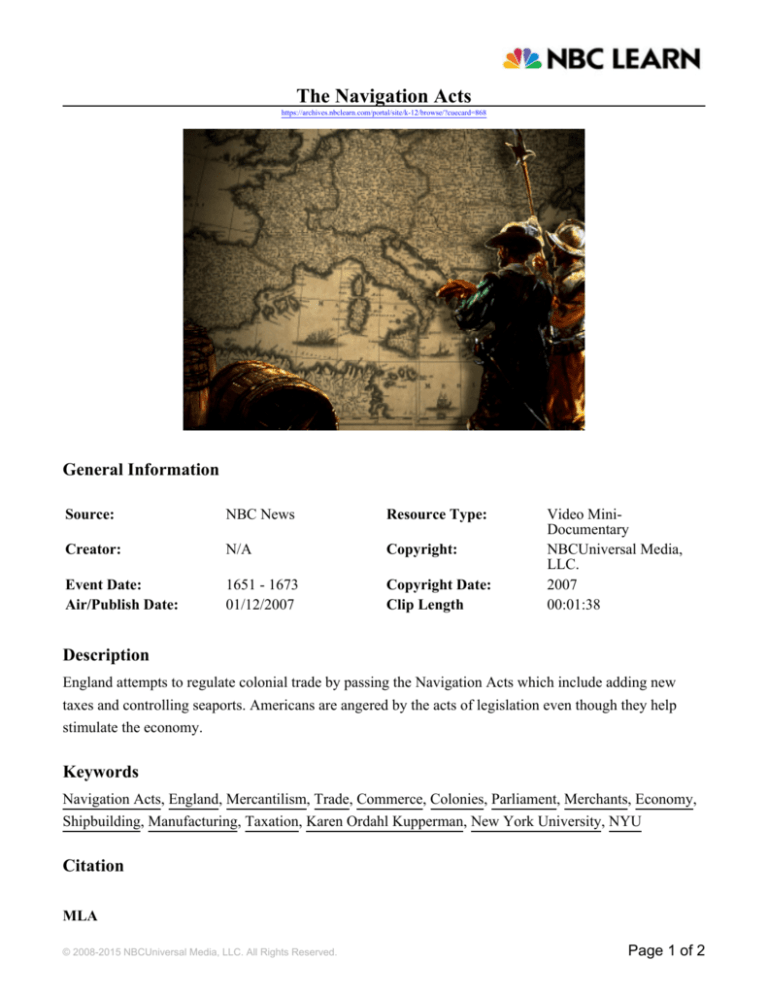
The Navigation Acts
https://archives.nbclearn.com/portal/site/k-12/browse/?cuecard=868
General Information
Source:
NBC News
Resource Type:
Creator:
N/A
Copyright:
Event Date:
Air/Publish Date:
1651 - 1673
01/12/2007
Copyright Date:
Clip Length
Video MiniDocumentary
NBCUniversal Media,
LLC.
2007
00:01:38
Description
England attempts to regulate colonial trade by passing the Navigation Acts which include adding new
taxes and controlling seaports. Americans are angered by the acts of legislation even though they help
stimulate the economy.
Keywords
Navigation Acts, England, Mercantilism, Trade, Commerce, Colonies, Parliament, Merchants, Economy,
Shipbuilding, Manufacturing, Taxation, Karen Ordahl Kupperman, New York University, NYU
Citation
MLA
© 2008-2015 NBCUniversal Media, LLC. All Rights Reserved.
Page 1 of 2
"The Navigation Acts." NBC News. NBCUniversal Media. 12 Jan. 2007. NBC Learn. Web. 18 March
2015
APA
2007, January 12. The Navigation Acts. [Television series episode]. NBC News. Retrieved from
https://archives.nbclearn.com/portal/site/k-12/browse/?cuecard=868
CHICAGO MANUAL OF STYLE
"The Navigation Acts" NBC News, New York, NY: NBC Universal, 01/12/2007. Accessed Wed Mar 18
2015 from NBC Learn: https://archives.nbclearn.com/portal/site/k-12/browse/?cuecard=868
Transcript
The Navigation Acts
NARRATOR: As the American economy grew, colonists began trading with countries besides England.
Beginning in 1651, the British passed a series of Navigation Acts in an effort to restrict trading
partnerships, and to keep colonial trade within their empire.
Professor KAREN ORDAHL KUPPERMAN (New York University): They wanted to regulate the trade
between the colonies and England to make sure that the colonies traded directly with England, and that the
products of the colonies did not go to other countries.
NARRATOR: In 1663, another Navigation Act was passed requiring European goods destined for the
American colonies to pass through England first so they could be taxed. For a decade, colonists ignored
these acts and continued to sail in and out of foreign ports. But in 1673, an irritated Parliament
determined to profit from colonial trade, passed a law taxing all ships leaving colonial ports. British
officials policed American harbors to make sure the tax laws were enforced. Colonists complained
bitterly about the unwelcome oversight and the damage to local trade. Ironically, since the English
preferred to trade with their colonies than with rival nations, the Navigation Acts actually stimulated parts
of the colonial economy, especially shipbuilding and manufacturing.
© 2008-2015 NBCUniversal Media, LLC. All Rights Reserved.
Page 2 of 2

